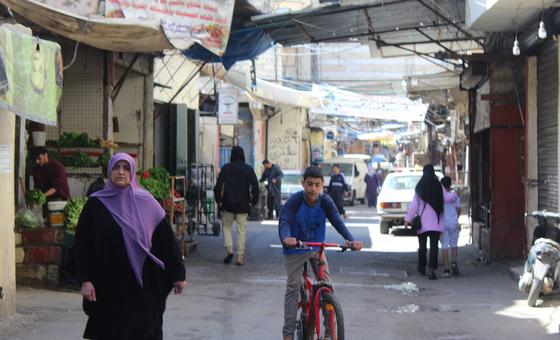Thousands of children have been put at risk amid a resurgence of violence at a Palestine refugee camp in Lebanon, the UN’s top humanitarian official in the country said on Friday.
Clashes between rival factions in the Ein el Hilweh camp, the largest in Lebanon, has also displaced thousands of refugees, according to reports.
Armed groups have taken over eight schools run by UNRWA, the UN agency providing support to Palestine refugees, preventing around 6,000 children from accessing the classroom as a new school year gets underway.
‘Safe and neutral spaces’
“Education institutions must be safe and neutral spaces, critical for children’s learning, well-being, and growth,” Imran Riza, UN Humanitarian Coordinator for Lebanon, said in a statement.
He underscored that use of schools by armed groups are not only a serious violation of international humanitarian and human rights laws but also jeopardize the future of the entire community.
“I urge armed groups to stop the fighting in the camp and vacate these schools immediately.”
“I also call for the facilitation of the work of UNRWA and other humanitarian organizations to provide much-needed protection and assistance to families in need in the camp,” Mr. Riza added.
History of brutal clashes
Established in 1948, Ein el Hilweh camp is the largest among the 12 in Lebanon and is home to around 50,000 refugees. It is located near Saida, a major city and cultural hub, in the country’s south.
The camp was the scene of brutal clashes in July that claimed the lives of at least 13 people, injured more than 60 – including UNRWA staff – and forced thousands to flee.
Two UNRWA schools also sustained damage in the clashes and services at clinics run by the agency were suspended. The clinics reopened on 9 August, after a nervy ceasefire.
Protection a ‘shared responsibility’
In his statement, Mr. Riza underlined that protecting civilians, including children and their safe access to school, is a shared responsibility.
“All concerned actors must take action to protect civilians, facilitate unhindered humanitarian access, and prevent the use of civilian infrastructure for fighting purposes,” he said.

